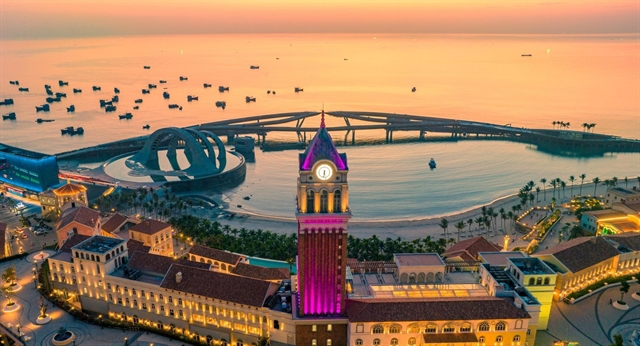 Life & Style
Life & Style

An exhibition displaying old photos and documents relating to the fight of the Vietnamese people against French-Spanish coalition forces in Đà Nẵng in 1858-60 opened at the Nghĩa Trủng Hòa Vang (the Hòa Vang Martyrs Cemetery) in Cẩm Lệ district on August 29.
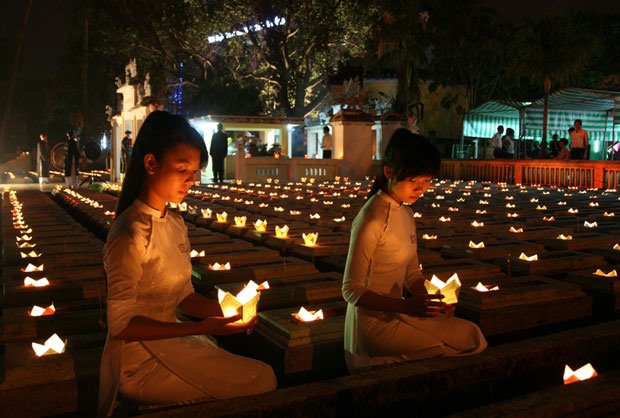 |
| Candlelight: A ceremony to commemorate the martyrs who died during the fight against French-Spanish coalition forces in Đà Nẵng in 1858-60. — Photo courtesy Đà Nẵng Newspaper |
ĐÀ NẴNG — An exhibition displaying old photos and documents relating to the fight of the Vietnamese people against French-Spanish coalition forces in Đà Nẵng in 1858-60 opened at the Nghĩa Trủng Hòa Vang (the Hòa Vang Martyrs Cemetery) in Cẩm Lệ District on August 29.
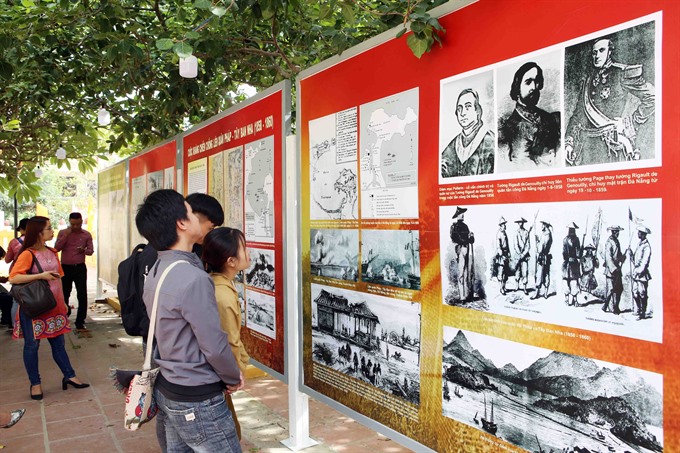 |
| Looking on: Visitors join an exhibition in commemoration of the 160th anniversary of the fight against French and Spanish forces at the Nghĩa Trủng Hòa Vang (the Hòa Vang Martyrs Cemetery) in Cẩm Lệ district. — VNS Photo Lê Lâm |
The exhibition, which is part of a series of activities commemorating the 160th anniversary of the fighting in previous century, features 85 documents and photos of the fight of Nguyễn Tri Phương (1800-73), a famous general who commanded an army and civilians against the French-Spanish coalition forces.
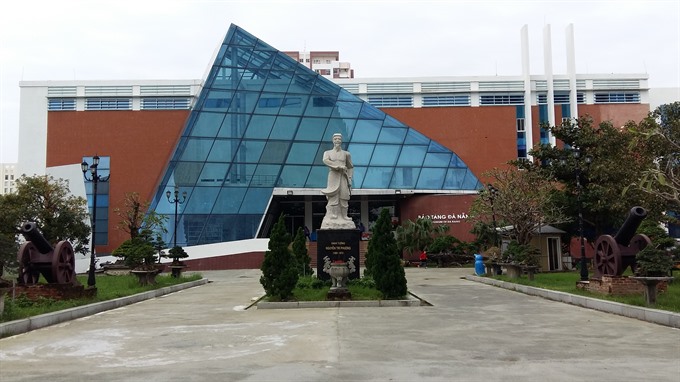 |
| Hero: Statue of Nguyễn Tri Phương (1800-73), a famous general who commanded an army and civilians in fighting against French-Spanish coalition forces in 1858-60, set up at the Điện Hải Citadel. — VNS Photo Công Thành |
Đà Nẵng still preserves two martyr cemeteries – the Hòa Vang and Nghĩa Ninh – in which more than 4,300 civilians and soldiers killed during the 1858-60 battles with the French-Spanish forces are buried.
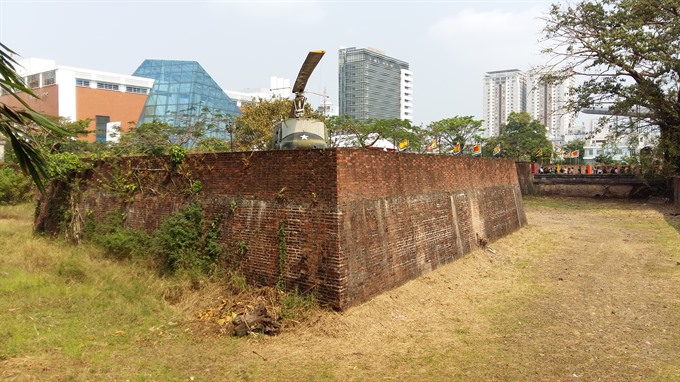 |
| Still up: A corner wall of the Điện Hải Citadel. — VNS Photo Công Thành |
The two cemeteries were built in 1886-1876 under King Tự Đức in memory of the soldiers, commanders and civilians who died in the country’s defence.
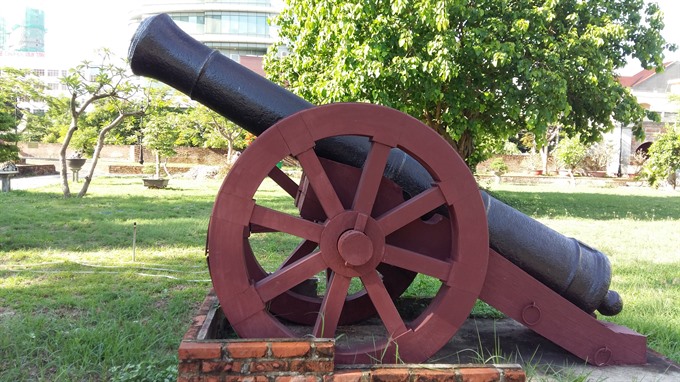 |
| Powerful: A cannon displayed at the Điện Hải Citadel. The weapon was used during the fight with French-Spanish forces 1858-60. — VNS Photo Công Thành |
The event also aims to make clear the role of Đà Nẵng and the Điện Hải Citadel in the defence against attacks by French-Spanish coalition forces and the withdrawal of the invaders.
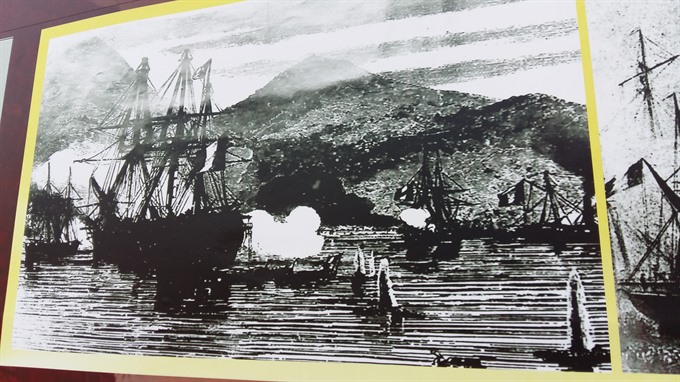 |
| Black and white: An old photo of the Hàn River Port in Đà Nẵng from previous centuries. — VNS Photo Công Thành |
Last year, the city proposed that 11 iron cannons cast during the Nguyễn Dynasty between 1802 and 1860 and unearthed at the Điện Hải Citadel between 1979 and 2008 be recognised as a national treasure.
The exhibition will open to the public and last until the National Day (September 2).
A commemoration ceremony for the martyrs will be held at the
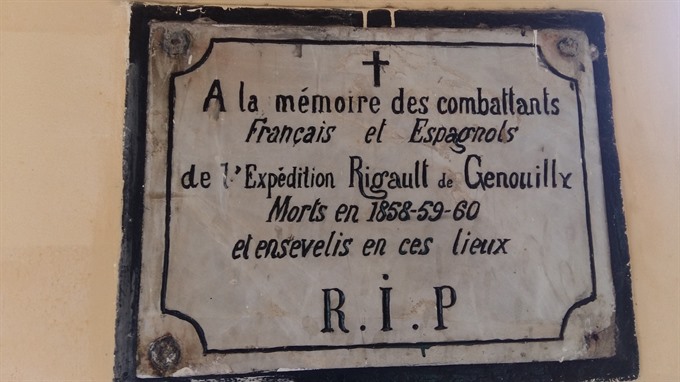 |
| Fallen foes: A stele inscribed in French at the Graveyard of the French troops that were killed in the fighting from 1858-60 in Đà Nẵng. — VNS Photo Công Thành |
Đà Nẵng has began restoring the Điện Hải Citadel built in 1813 – a National Special Relic – and a collection of cannons that are closely linked to General Phương, and army troops and civilians in fighting against the French-Spanish forces.
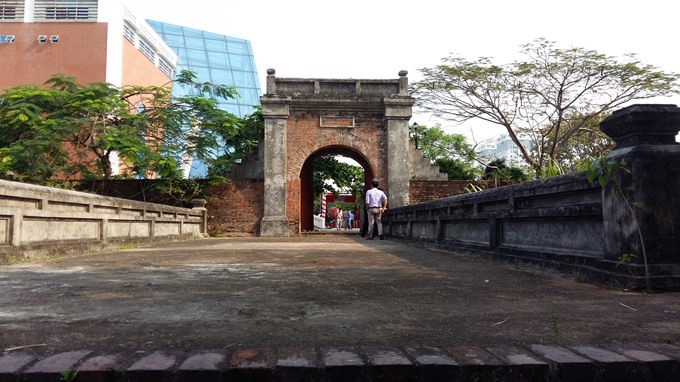 |
| Standing strong: A gate of the Điện Hải Citadel. The site was seen as a key military post in the defence against invaders’ attacks. — VNS Photo Công Thành |
The city has also preserved the graveyard of French and Spanish soldiers who died during the fighting near Tiên Sa Port. — VNS

